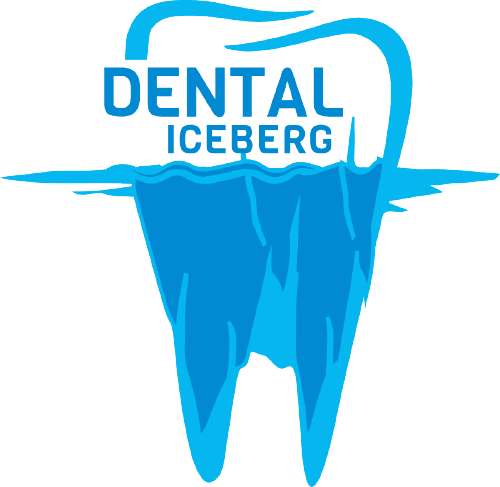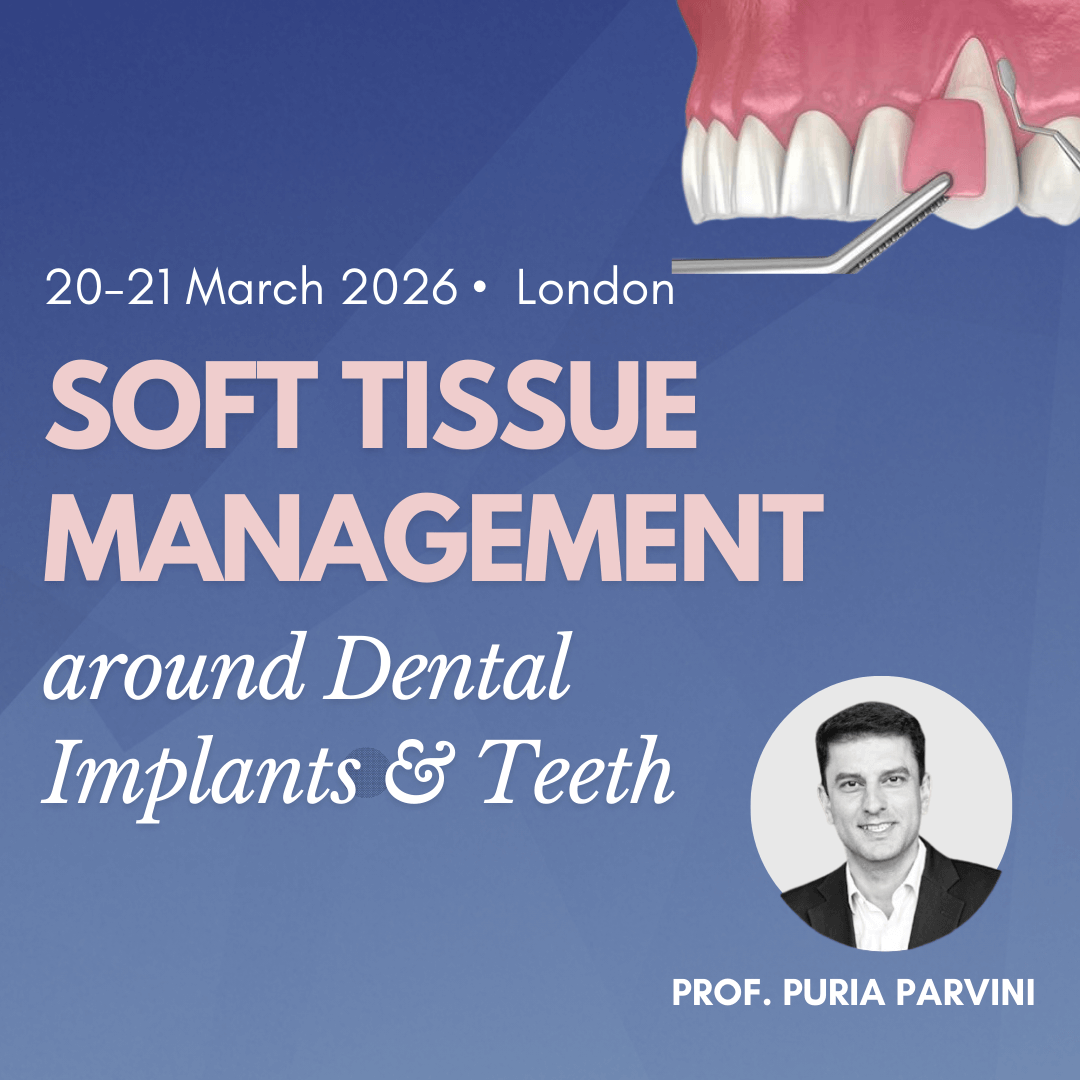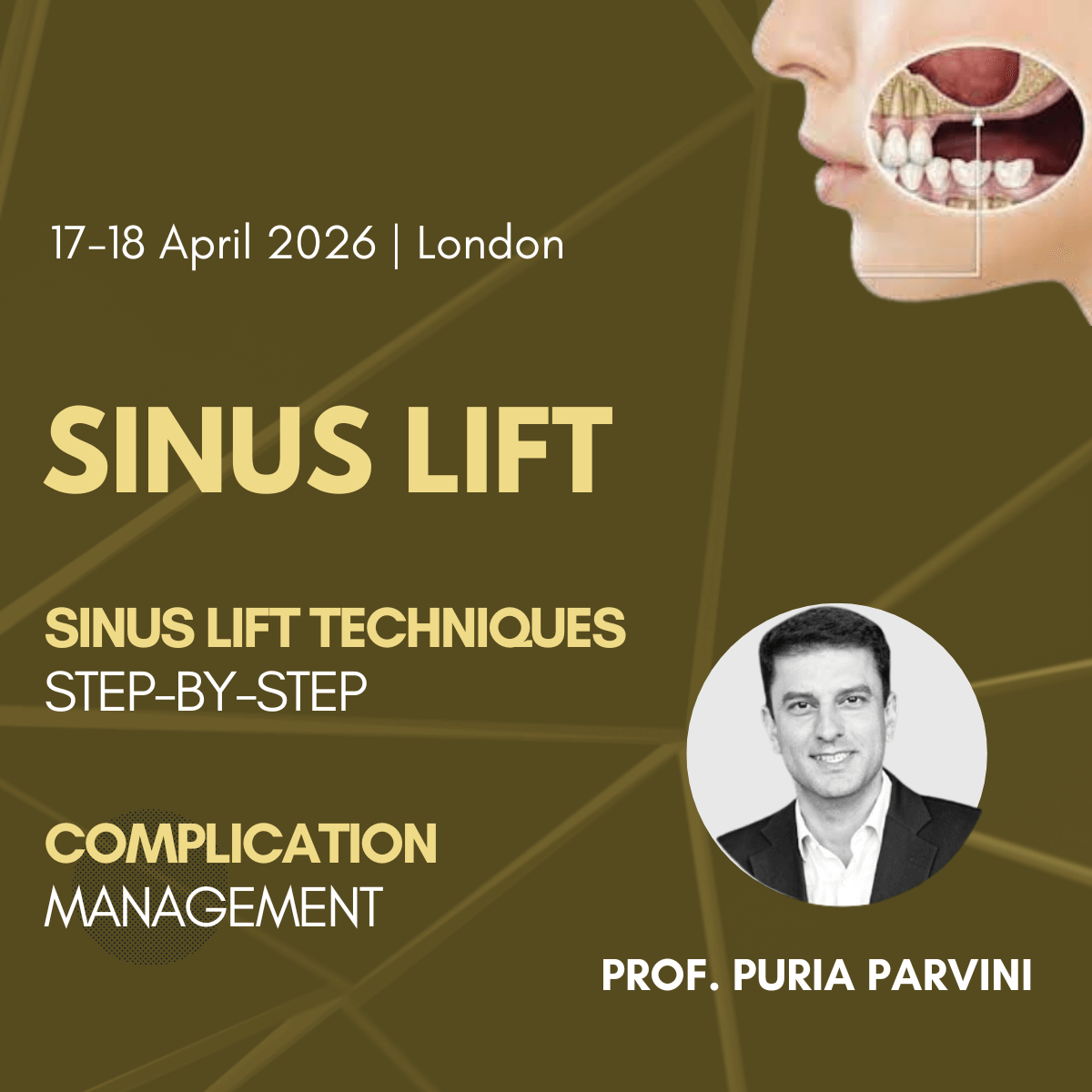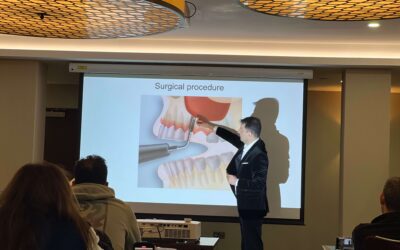Zero Bone Loss Concepts Course
with Prof. Tomas Linkevičius
6-7 November 2026, London | 9:00AM-17:00PM
Danubius Hotel Regents Park, London NW8 7JT
Comprehensive surgical and prosthetic programme
Delayed and immediate implant protocols, vertical soft-tissue augmentation, crestal bone preservation, and contemporary prosthetic principles – all with hands-on training.
Super Early Bird Rate
for a limited time only
£2,499
£3,200
Join us for an exclusive, first-time-ever masterclass in the UK with one of the world’s most influential figures in implant dentistry – Professor Tomas Linkevičius. You will apply these concepts in your practice from the very next day.
Prof. Linkevičius is internationally renowned for his research on crestal bone stability, vertical soft-tissue thickness, and his pioneering philosophy, Zero Bone Loss Concepts (ZBLC). His scientific contributions have fundamentally reshaped modern implantology, equipping clinicians with predictable, evidence-based protocols to achieve long-term bone and soft-tissue stability around implants.
This intensive hands-on programme is designed for clinicians who want to refine their surgical and prosthetic skills with methods proven to improve long-term implant success and soft-tissue health. Over the course of two training days, participants will gain deep insight into delayed and immediate implant protocols, vertical soft-tissue enhancement, and prosthetically driven implant planning – supported by extensive hands-on practice.
Pay in 3 Interest-Free Monthly Instalments

14 hours Verifiable CPD

Hands-on Courses

World-renowned Speaker
COURSE CONTENT
6-7 November 2026 (Friday-Saturday)
9:00AM-17:00PM
Danubius Hotel Regents Park London | 18 Lodge Rd, London NW8 7JT
DAY 1 – Delayed Implants & Vertical Soft-Tissue Enhancement
I. Crestal Bone Stability & Soft-Tissue Influence
-
Development of crestal bone stability through surgical concepts
-
Impact of vertical soft tissue on crestal bone preservation
-
Platform switching: does it truly protect bone?
-
Influence of implant placement depth
-
Importance of implant–abutment connection stability
-
Bone remineralisation & corticalisation in thick tissues
II. Four Novel Methods to Increase Vertical Soft-Tissue Thickness
a) Subcrestal implant placement
b) Flattening of the alveolar bone
c) “Tent Pole” technique
d) Vertical soft-tissue thickening
III. HANDS-ON: Vertical Soft-Tissue Augmentation
Practice on pig jaws:
-
Incision design
-
Blunt flap release for tension reduction
-
Preparation of allogenic membranes
-
Membrane positioning
-
Matrix-suture stabilisation
Techniques performed:
-
Subcrestal implant placement
-
Tent pole method
-
Alveolar bone flattening
-
Vertical soft-tissue thickening
Additional Hands-On
-
Soft-tissue profile creation with individual healing abutments
DAY 2 – Immediate Implants & Implant Prosthetics
I. Immediate Implants
-
Rationale for immediate implant placement: benefits and risks
-
Why immediate implants can fail—and how to prevent it
-
Biological success factors
-
Osseointegration
-
Emergence profile
-
Peri-implant tissue response
-
-
Achieving primary stability & controlling crestal bone levels
Case-Specific Protocols
-
Immediate molars (Types A, B, C):
-
Implant depth
-
Bone grafting
-
Stability
-
Healing abutments
-
Soft-tissue grafting
-
-
Immediate premolars
-
Immediate anterior implants
-
Complications and how to avoid them
HANDS-ON: Immediate Implant Placement
Practice with models:
-
Extraction socket evaluation
-
Elimination of thin septum
-
Determining implant diameter & thread width
-
Implant placement in molars & premolars when standard apico-coronal positioning is not possible
-
Fabrication of individual healing abutments
II. Implant Prosthetics
-
How to control cement remnants after cementation
-
Supragingival margins & custom abutments
-
Relationship between cement and peri-implant disease
-
Screw-retained restorations vs. cement-retained
-
Use of Ti-bases in restorations
-
Best cements for Ti-bases
Prosthetic Materials
-
Subgingival: zirconia, titanium, ceramics—pros & cons
-
Use of ultra-polished zirconia
-
Peri-implant soft-tissue composition
-
Supragingival materials (ceramics, e.max, monolithic zirconia): indications and selection
HANDS-ON: Advanced Impression Technique
-
Implementation of Prof. Linkevičius’s special impression method for deeply positioned implants
-
Stabilisation of the transfer using occlusal registration materials
Prof. Tomas Linkevičius
PhD in implant dentistry, Professor at Vilnius University, Researcher
- Implant Dentist, Researcher, Educator
-
Creator of Zero Bone Loss Concepts for achieving long-term crestal bone stability.
-
Author of Zero Bone Loss Concepts Book and numerous peer-reviewed publications
-
Researcher on soft-tissue thickness, implant placement protocols, and prosthetic factors influencing bone stability.
-
International lecturer
Courses Delivered
Dentists Educated
Hours Verifiable CPD Collected
VENUE
Danubius Hotel Regents Park
18 Lodge Rd, London NW8 7JT
The venue is located in the very heart of the London overlooking Regents Park and Lord’s Cricket Ground.
Being just a 10 minute walk from St. John’s Wood tube station, the hotel is easily accesible. Parking is possible on site. Parking charges are £35 for 24Hrs or £4.50 per hour.

Pay in 3 Interest-Free Monthly Instalments
Learning Objectives
-
Learn the key principles behind crestal bone stability
-
Understand the impact of soft-tissue thickness on implant success
-
Master delayed and immediate implant protocols
-
Perform four techniques to enhance vertical soft tissue
-
Develop hands-on skills in soft-tissue and membrane handling
-
Improve implant aesthetics with individual healing abutments
-
Apply prosthetic strategies that prevent bone loss
-
Use Prof. Linkevičius’s advanced impression technique for deep implants
Sponsors

UPCOMING COURSES
Latest news
Sinus Lift Complication Management
When patients lose teeth in the posterior maxilla, alveolar bone resorption follows as a consequence of physiological bone remodelling following tooth loss and also from sinus cavity pneumatization towards the alveolar crest. These two processes usually result in...
Mastering Sinus Lift Techniques: A Guide for Implant Dentists
Dental implantology has advanced significantly, allowing patients with severe bone loss to receive implants successfully. One of the key procedures enabling this is the sinus lift—a crucial surgical technique that increases bone volume in the posterior maxilla. In...
Rebuilding bone with precision – Autogenous Bone Augmentation
The success and long-term stability of dental implants is directly related to the quantity and quality of the supporting bone and surrounding soft tissue. When there is a lack of adequate bone volume for implant placement, a variety of bone augmentation procedures...

14 hours Verifiable CPD

Hands-on Course







